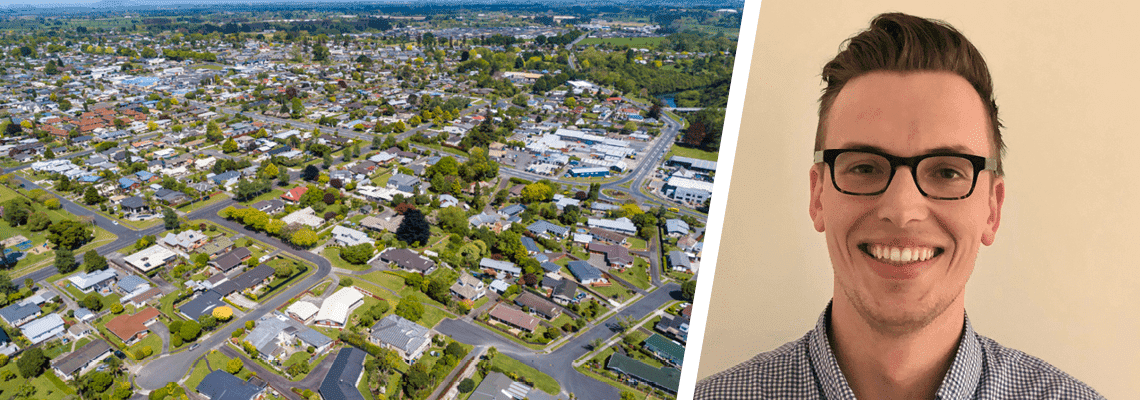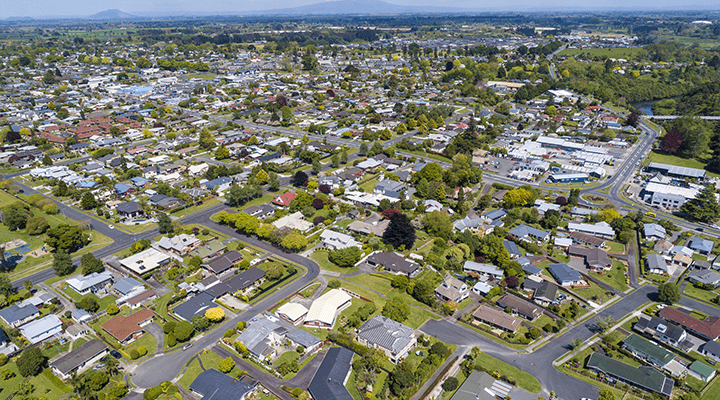
UK water utility Anglian Water supplies over four million people with drinking water and treats wastewater from over six million customers.
The largest water and wastewater company in England and Wales geographically, the company operates over 140 treatment works.
Central to the utility’s ‘innovation strategy ’ is the Shop Window programme. Based in the town of Newmarket where 22,000 customers live, the Shop Window is a “real-world” location where new innovations can be tested and scaled.
Campaigns have included ‘The Smarter Drop’, which aims to turn Newmarket into the “water-saving capital of the UK”. Nearly 7000 smart meters have been installed across the town with the ambitious goal of reducing water consumption from 130 litres to 80 litres per person per day.
Fionn Boyle oversees the project as shop window manager at Anglian Water. Below is a sample of an interview recently recorded with him.
Fionn Boyle, shop window manager, Anglian Water (FB): I guess my career path is not a traditional one. I started working in the water industry when I was about 15. I did work experience with one of our Anglian Water Alliance partners, and I continued to work with them every summer as I went through school. This was just as summer work, but I got a good flavour for what work in construction and the water industry was like.
After work experience, I started as a labourer out on site. Most of the schemes we worked on included water recycling infrastructure. This covered first-time sewerage schemes or flood alleviation work. One of the biggest schemes I worked on was relining Victorian sewers in Northampton, which was a highlight.
FB:I always wanted to go to university, so when I was 18, I asked myself what I enjoyed most. It was biology. Rather than studying civil engineering as some might have predicted from my work experience, I focused on medical research, which interested me most at the time. I enrolled on a biological and forensic sciences degree course - I'm quite values driven, so essentially, I wanted to help people.
After leaving university with a degree, in terms of job prospects, working in a lab didn’t appeal to me - , it wasn't what I wanted to do. So, to be honest, I was a little bit lost, and I think that's important to say because a lot of people have really clear career plans from when they start out, and they know what they want to do. I didn’t have that from a young age, but it doesn’t need to hold you back.
FB: I knew that I enjoyed working in the water industry. An opportunity came up to work for Anglian Water in the innovation team. They were looking for someone with a little bit of civil engineering experience and a bit of biology background, so it was a perfect fit. I took it and from there I found that working in the water company was absolutely for me.
“We're trying to create the water company of the future… using this project, we have more freedom to explore than anywhere else and to drive progress.”
FB: No, not at all. I have one or two that have gone into civil engineering. But most of my friends work in finance. I grew up in London, so everyone wanted to either be a consultant or work in banking. I'm a bit different! I've found something that I enjoy, and I'm keen to stick with it.
FB: Why does Anglian Water have a person that manages shop windows? That is an ice breaker question I get asked a lot! But the idea behind the name is that if you own a shop, you've put your best products in the shop front to try and attract people in and to demonstrate what you're doing. And that's what we do with the Shop Window initiative: we try to drive all our innovation, all our best practice into this one physical area in order to show what can be achieved through working in partnership.
FB: We're trying to create the water company of the future. We're facing big challenges as an industry, and we're attempting to look at what’s going to happen in the future. Using this project, we have more freedom to explore than anywhere else and to drive progress.
Our work is based around seven aspirational goals. These range from building a circular economy, driving down customer consumption to 80 litres per person per day to achieving zero leakage. They are hugely aspirational, but we know that as a business when you set a target, and you are set to achieve it, efforts can slow down in the last stages of a project. The idea with this is that we continue to drive innovation not just within Anglian Water, but the whole industry.
“When people talk about innovation in the water industry, we generally talk tech first. This is obviously a key part of innovation, but it should be treated as an enabler to support our people and our processes.”
FB: We wanted to think about innovation differently in the face of AMP6 (asset management period) as it was. We have unique challenges in the East of England, different to the UK as a whole. Some of these challenges are shared, but outside of London our region is home to three of the fastest growing cities in the UK.
We also have a lot of challenges around water resources, so we have to put these into perspective when to think about how we tackle these challenges, and we know this means not focusing solely on technology. When people talk about innovation in the water industry, we generally talk tech first. This is obviously a key part of innovation, but it should be treated as an enabler to support our people and our processes.

As the largest UK water provider by geographic region, Anglian Water services three of the fastest growing cities outside of London
We challenge ourselves through our objectives. For example, "Where do we want to be in terms of our performance commitments or customer service?" We then adjust our processes and upskill our people to be able to work in different ways by using technology to enable that change to happen.
FB: The word ‘partner’ is really important to us at Anglian Water. Typically, people talk about suppliers and the supply chain. What we try to do is focus on partners all the way through from our tier one contractors, where we work in an alliance model, right down to SMEs. We work alongside them collaboratively through our open innovation approach. I think the biggest success we've had through the Shop Window, is our smart water systems project and our customer behaviour change engagement strategy, where we’ve seen metered customers drop their consumption to almost 100 litres per person , per day.
FB: We've worked closely with our optimisation team in water as well as the Smart Water Networks Forum (SWAN), and we apply its model which focuses on different layers of a smart network and how they work together - from infrastructure, pipes and pumps all the way up to visualisation and actionable insight. We work that backwards, taking the outcome we want to achieve and then identify the correct components we need to enable change to happen. A lot of our Shop Window projects around water have been based on this methodology, looking at sensors across the network from flow, pressure, noise and the system they form. Andy Smith, our smart water strategy manager has embedded this thinking into our business. This enables us to bring different suppliers into our Shop Window and develop their solution together, so they build the best product and we receive the best outcome for our customers.

Anglian uses the SWAN model to see how different layers of a smart water network work together
FB: The innovation fund is hugely exciting for anyone that works in the water industry and particularly those who work in innovation. I think the biggest thing that's coming out of that is the need to share and collaborate around opportunities, so bringing water companies together to work on solutions in partnership is the way forward.
I believe the fund will allow us to share strategies to accelerate the process from ideation to implementation. We're talking about transformational innovation and taking ideas and rolling them out across businesses to make a real difference to customers and the environment.
FB: I think partnerships in the UK are important but so are those further afield. We're very closely tied into the International Water Association, and through the Shop Window, we've developed a coalition between ourselves, Vitens in the Netherlands and Global Omnium in Spain.
This is a partnership to drive progress in digital and water innovation. It is championed by our respective CEOs and I’m working closely with our optimisation team in water to ensure we have the right people connected throughout our operations. People tend to think innovation happens within certain teams exclusively, but that’s not the case in Anglian Water.
The Shop Window doesn't belong to my team, it’s Anglian Water’s, and we're there to make sure that this geographical area enables our people to explore and practice innovation easily. It is the business and our people that really drive us to be able to succeed and progress in the way we do.
FB: It's hard to predict the future, isn't it?
AO: Let’s try.
FB: Well, I’m only 28, so I plan on having a lot more years in work. I enjoy what I do, and I enjoy the water industry. I would never say no, but while I'm still developing at Anglian Water and I'm still tied into the values that we have here, it would take a lot for me to move on. I know I want to make an impact through my work, so if I feel that I'm making an impact while working at Anglian Water - and I can see that it’s not just in Anglian but wider through the partnerships we talked about - then I am happy. I would always look to see what's out there and perhaps where things could go, but Anglian Water has been great to me.
FB: The first thing I would do is to signpost to our Water Innovation Network (WIN). At Anglian Water, we've developed this network with a local not for profit that allows SMEs or any supplier to access us and present their solutions to our challenges. We also have an expert review panel that's set up internally to look at submissions.
People can reach out to the rest of the team or me through LinkedIn and have a chat. We're very open to exploring new opportunities, and as I said, we're committed to transparently sharing our challenges. If anyone can help us look to the future and develop further, we're more than happy to talk.